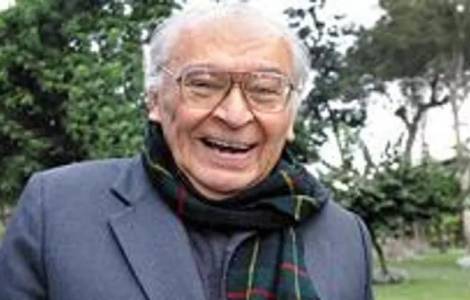
by Gianni Valente
Lima (Agenzia Fides) - "A genius, yes, a genius. But above all, a good man." These were the words of the Jesuit Francisco Chamberlain, many years ago, addressing his Peruvian confreres. He was referring to his friend Gustavo Gutiérrez, the priest and theologian recognized worldwide as the "noble father" of Liberation Theology.
Father Gutiérrez, who entered the Order of the Friars Preachers in 1999, died on October 22 in Lima, his hometown, at the age of 96. His life was long and intense, intertwined with the impulses, controversies, intuitions and wounds that have marked the path of Latin American Catholicism in the last century.
His 1971 book, entitled 'Theology of Liberation', gave its name to the theological current that was developing in Latin America in those years. A movement that would, over time, incorporate different and sometimes conflicting experiences and perspectives. In the 1980s, the Congregation for the Doctrine of the Faith had published two Instructions with the intention of pointing out the pastoral and doctrinal deviations that loomed over the paths taken by Latin American theologies.
Gutiérrez's works were subjected for a long time to rigorous examination by the Congregation for the Doctrine of the Faith, although they were never the object of condemnation or censorship.
From 1995 to 2004, the process of studying Father Gutiérrez’s work also involved the Peruvian episcopate and gave rise to the writing of an essay – entitled The Ecclesial Koinonia – extensively revised by Gutiérrez himself in accordance with the observations from Rome and published in its final version in the magazine Angelicum in 2004.
The then Cardinal Joseph Ratzinger, prefect of the Congregation for the Doctrine of the Faith, wrote a letter on December 17 of that year to the Argentine Dominican Carlos Alfonso Azpiroz Costa – then Master General of the Order of Preachers – in which he gave “thanks to the Almighty for the satisfactory conclusion of this path of clarification and deepening.”
According to his friend, the Jesuit Francisco Chamberlain, Father Gutiérrez's faithful goodness had also been refined by the 20 years in which he had faced "ferocious attacks from the adversaries of his theology, outside and inside the Church. He was accused of everything, of being unfaithful to the Church, of distorting the Gospel, of being more of a politician than a theologian, of being anything but a faithful follower of Jesus." And in "those long years of trial," Father Chamberlain added in his testimony, "I never heard from him a word of bitterness, of contempt for his adversaries." And this also because "Gustavo's interest was never to vindicate the value of his theology, but rather to remember the Church's predilection for the poor." In recent decades, one of the most decisive in responding to the accusations and criticisms against Gustavo Gutièrrez was the Archbishop-theologian Gerhard Ludwig Müller, now a Cardinal, who was Prefect of the Congregation for the Doctrine of the Faith from 2012 to 2017, and who had been friends with the Peruvian theologian since the late 1980s. In 2008, during the ceremony to present the honorary degree awarded to him by the Pontifical Catholic University of Peru, the then bishop of Regensburg had described Father Gutièrrez's theology as fully orthodox.
As early as 2004, Müller and Gutiérrez had written a collection of theological essays together, published in Germany. In that volume, Müller wrote that “the ecclesial and theological movement in Latin America known as ‘liberation theology’, which since Vatican II has found an echo throughout the world, must, in my opinion, be counted among the most significant currents of Catholic theology of the twentieth century.” In one of the essays contained in the volume, Müller also described the political and geopolitical factors that conditioned certain “crusades” against the Tdl: “The triumphalist feeling of a capitalism, which probably considered itself definitively victorious,” reported the Prefect of the Vatican doctrinal dicastery, “was also mixed with the satisfaction of having thus removed all foundation and justification from Liberation Theology.” In the volume, Müller also referred to the confidential document prepared for US President Ronald Reagan by the Santa Fe Committee in 1980, urging the government of the United States of America to proceed aggressively against "Liberation Theology", guilty of having transformed the Catholic Church into a "political weapon against private property and the capitalist system of production". After complicated decades, it was easier to recognize and distinguish the crumbling ideological framework of the past from the genuine evangelical source that animated many paths of Latin American Catholicism after the Council. Paths that were also opened thanks to the faith and work of Father Gustavo Gutiérrez. Gustavo Gutiérrez's theology drew its lifeblood from the liturgies celebrated by the priest with the poor, in the suburbs of Lima. That is, from the elementary experiences in which one perceives - as Father Gustavo himself used to repeat with simplicity - that "being a Christian means following Jesus." (Agenzia Fides, 26/10/2024)